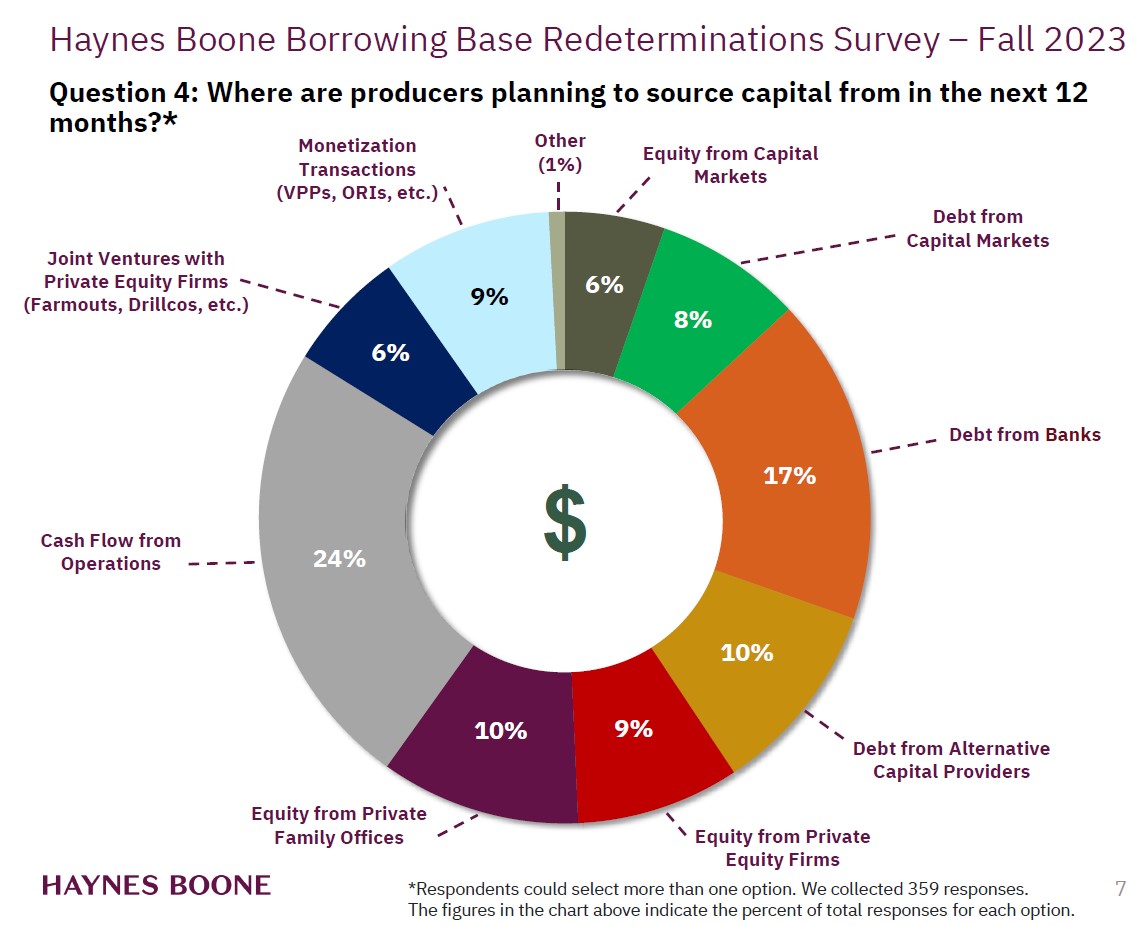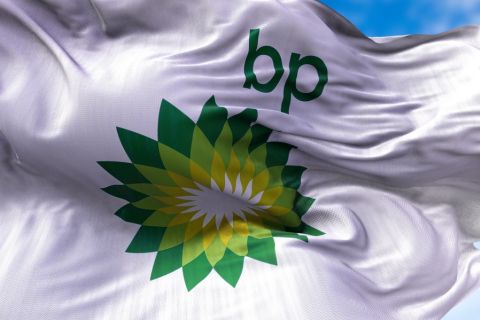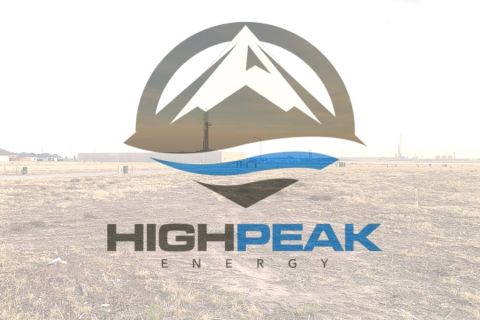Reserve-based lending (RBL) is expected to decline as a source of capital for independent oil and gas companies in the next 12 months, a new survey shows. E&Ps’ combination of free cash flow and access to different sources of equity are expected to make up nearly half of companies’ capital sources, according to findings in Haynes Boone’s fall 2023 Borrowing Base Redeterminations survey.
The law firm’s survey asked respondents about their expectations for the oil and gas industry in general — not for specific companies. About 17% of respondents said bank debt would be a source of oil and gas capital in the next 12 months, a 20% decrease from the firm’s April survey.
“The main reason is that there’s still a shortage of participants on the lender side of this market,” Haynes Boone partner Kraig Grahmann told Hart Energy. “Even though there’s strong fundamentals right now. Some banks out there have had bad experiences with making these kinds of loans over the last 10 years. They’re very cautious on jumping in to fast on an up market.”

Many banks have left the space because of ESG concerns or because they’ve soured on the oil industry’s boom-bust cycles. Some smaller banks have merged with larger banks that do not want RBL exposure.
Grahmann added that remaining banks are still cautious about oil and gas companies’ potential to boom and bust – resulting in loading up RBL loan applications with at least 50% hedging requirements on a company’s production. He said this has driven some oil and gas companies away from banks.
Free cash flow is expected to be the largest source of oil and gas capital in the next 12 months at 24%, but the survey identified three sources of equity that constitute another 25%. Survey respondents see equity coming from family offices (10%), private equity firms (9%) and capital markets (6%).
“Equity investors have finally gotten comfortable that oil and gas companies have cleaned up their act financially and are willing to start putting money into that market,” Grahmann said.
The survey also found interest in continuing with strong hedging strategies. Just more than half of respondents said RBL credit facility borrowers will hedge 50% to 60% of their production for the next 12 months.
In a sign that higher commodity prices might be starting to nudge the industry out of if its reluctance to drill new wells, 7% of survey respondents said RBL lenders are very interested in funding new drilling activity and 49% of respondents said lenders are slightly interested.
“These companies have righted the ship. They’ve figured out how to live within a budget and how to live off of positive cash flow. Now lenders are slightly interested or at least not uninterested in having their loan proceeds be used to drill new oil and gas wells, especially because there’s a sign lenders see that prices will continue to rise, and this is a good use of their dollars,” Grahmann said.
The survey questioned 102 executives: 41% were oil and gas producers, 36% were lenders, 15% were professional services firms, 3% were oilfield services companies and 5% were private equity firms.
Recommended Reading
BP’s Kate Thomson Promoted to CFO, Joins Board
2024-02-05 - Before becoming BP’s interim CFO in September 2023, Kate Thomson served as senior vice president of finance for production and operations.
Magnolia Oil & Gas Hikes Quarterly Cash Dividend by 13%
2024-02-05 - Magnolia’s dividend will rise 13% to $0.13 per share, the company said.
TPG Adds Lebovitz as Head of Infrastructure for Climate Investing Platform
2024-02-07 - TPG Rise Climate was launched in 2021 to make investments across asset classes in climate solutions globally.
HighPeak Energy Authorizes First Share Buyback Since Founding
2024-02-06 - Along with a $75 million share repurchase program, Midland Basin operator HighPeak Energy’s board also increased its quarterly dividend.
Occidental Increases Annual Dividend by 22%
2024-02-11 - Occidental Petroleum Corp.’s newly declared dividend is at an annual rate of $0.88 per share, compared to the previous annual rate of $0.72 per share.





